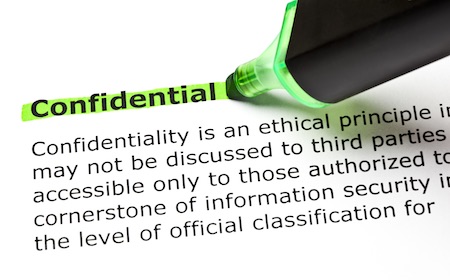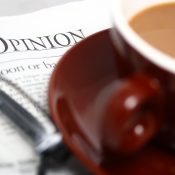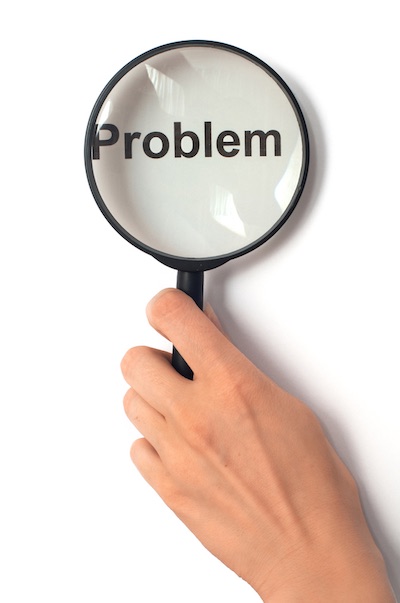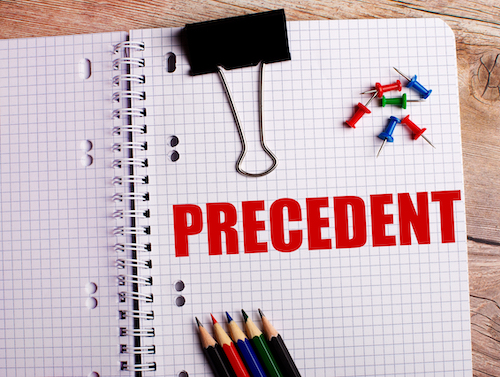 Patent agents in the United States are authorized to practice in patent prosecution matters before the United States Patent and Trademark Office (“USPTO”). Such authorized practice includes both preparation and prosecution of patent applications as well as appeals and AIA review proceedings before Patent Trial and Appeal Board (“PTAB”). Unfortunately, until recently is was unclear whether communications between patent agents and their clients are protected as privileged in proceedings before the USPTO or U.S. courts. Recently, however, the USPTO and the Federal Circuit have both clarified that a patent agent’s communications related to his or her authorized practice are protected in the same manner as attorney client communications, such as those by patent attorneys.
Patent agents in the United States are authorized to practice in patent prosecution matters before the United States Patent and Trademark Office (“USPTO”). Such authorized practice includes both preparation and prosecution of patent applications as well as appeals and AIA review proceedings before Patent Trial and Appeal Board (“PTAB”). Unfortunately, until recently is was unclear whether communications between patent agents and their clients are protected as privileged in proceedings before the USPTO or U.S. courts. Recently, however, the USPTO and the Federal Circuit have both clarified that a patent agent’s communications related to his or her authorized practice are protected in the same manner as attorney client communications, such as those by patent attorneys.
Specifically, in In re Queen’s University at Kingston, 820 F.3d 1287 (Fed. Cir. 2016), the Federal Circuit affirmed the privilege between patent agents and clients for communications reasonably connected to the preparation and prosecution of patent applications. The USPTO, meanwhile, finalized rules in December further clarifying the scope of the privilege in AIA proceedings. 37 C.F.R. § 42.57 (2017). Interestingly, while the court decisions don’t address privilege with respect to foreign jurisdiction patent practitioners,[See e.g., In re Queen’s.] the USPTO rules further provide for protection of privileged communications between foreign practitioners and U.S. practitioners or clients. 37 C.F.R. § 42.57 (2017).
Patent practitioners certainly appreciate the clarification from multiple authorities, but potential gaps in protection remain. Notably, there may be a lack of protection for correspondence with foreign associates on matters not related to preparation and prosecution of patent applications. In addition, protection may not be afforded in state courts, which are not bound by USPTO or Federal Circuit decisions. In view of potential gaps in protection, many practices may choose to keep caution as the general rule for correspondence with patent agents.
By way of example, although the USPTO rules indicate that foreign associates will be given the same privilege in AIA proceedings as those that are afforded to patent attorneys, federal and state courts have not addressed whether communications with foreign patent practitioners will be afforded privilege. So while communications between foreign patent practitioners and United States clients may be protected in proceedings at the PTAB, the same protections may not be provided in other countries, or federal or state courts.
Further, state courts are not bound by USPTO rules or Federal Circuit law. Accordingly, to the extent a patent agent’s communications regarding his or her authorized practice are at issue in a state court proceeding that can’t be removed to a federal jurisdiction, the communications may not have the same protection as that provided in a federal court or AIA proceeding. Although the circumstances under which communications between a patent agent and a client would be discoverable in litigation in state court are limited, the potential admissibility in various states leaves a gap in the potential privilege.
Lastly, communications that exceed the authorized practice of patent agents “fall outside the scope of patent-agent privilege”. [In re Queen’s, 820 F.3d at 1301] The new USPTO rules state that the privilege is limited to those communications “reasonably necessary and incident to the scope of the practitioner’s authority.” [37 C.F.R. § 42.57 (2017).] The Federal Circuit decision in In re Queens goes even further to clarify that privileged communications are limited and privilege does not apply to those “communications with a patent agent who is offering an opinion on the validity of another party’s patent in contemplation of litigation or for the sale or purchase of a patent, or on infringement,” because such communications “are not reasonably necessary and incident to the preparation and prosecution of patent applications or other proceeding before the Office.” In re Queen’s, 820 F.3d at 1301-1302.
Most patent agents do understand the scope of their role in providing a service to their clients. However, it is imperative that attorneys supervising patent agents ensure that any work product or communications provided by a patent agent fall within the authorized scope of the patent agent’s work. For instance, technical expertise provided by a patent agent may be worthwhile in an infringement, licensing, validity, or other legal analysis, but to the extent a patent agent is putting such opinions in writing, privilege may not protect such analysis in potential litigation. Patent agents are not legally allowed to practice law outside of patent prosecution matters. Id. at 1315. However, under the direction of a patent attorney, a patent agent can perform research and draft written analysis, opinions or recommendations that the patent attorney then reviews, approves or edits, signs and communicates to a client, which is then a protected communication under the attorney-client privilege. In contrast, communication directly between a patent agent and a client on matters that are outside of the scope of the patent agent’s authorized practice would not be protected. In re Queen’s, 820 F.3d at 1301.
Patent agents often have been advised by supervisors to communicate directly with clients only on matters related to patent drafting and patent prosecution, and to route any other work to and from clients through a supervising attorney. That policy, when followed, has long protected patent agents from accidentally straying into the practice of law that is not within the scope of a patent agent’s authorized practice and could cause trouble for clients and law firms alike. But now, such caution and practice is seen as consistent with the treatment of patent agent-client and patent attorney-client communication.
The use of patent agents to prosecute patent applications in the United States confers several benefits to clients, such as cost reduction, and the provision of specific knowledge or expertise in specific technical areas. While recent clarification from the USPTO and the Federal Circuit appear to offer the protection of privilege to certain authorized communications among patent agents and clients, the best practice for now, at least, is to continue limiting communication between clients and patent agents in view of assurances provided by the more certain and complete privilege provided to attorneys. Additionally, as with patent attorneys, in many cases the best option is to continue to avoid emails or other correspondence by patent agents that could be harmful if discoverable later. For example, even protected communications may become discoverable if privilege is later waived, intentionally or not. As many attorneys are told when beginning their legal career, picking up the phone for a quick call is often the best option. That being said, additional protection of patent agent correspondence should offer some comfort to patent practitioners and clients alike.

![[IPWatchdog Logo]](https://ipwatchdog.com/wp-content/themes/IPWatchdog%20-%202023/assets/images/temp/logo-small@2x.png)


![[Advertisement]](https://ipwatchdog.com/wp-content/uploads/2024/05/LexisNexis-May-16-2024-sidebar-700x500-1.jpg)
![[Advertisement]](https://ipwatchdog.com/wp-content/uploads/2024/04/Patent-Litigation-Masters-2024-sidebar-last-chance-700x500-1.jpg)
![[Advertisement]](https://ipwatchdog.com/wp-content/uploads/2024/05/Patent-Portfolio-Management-2024-sidebar-super-early-bird-with-button-700x500-1.jpg)
![[Advertisement]](https://ipwatchdog.com/wp-content/uploads/2024/05/Artificial-Intelligence-2024-Getting-AI-Patents-Allowed-sidebar-700x500-1.jpeg)

![[Advertisement]](https://ipwatchdog.com/wp-content/uploads/2021/12/WEBINAR-336-x-280-px.png)
![[Advertisement]](https://ipwatchdog.com/wp-content/uploads/2021/12/2021-Patent-Practice-on-Demand-recorded-Feb-2021-336-x-280.jpg)
![[Advertisement]](https://ipwatchdog.com/wp-content/uploads/2021/12/Ad-4-The-Invent-Patent-System™.png)







Join the Discussion
No comments yet.